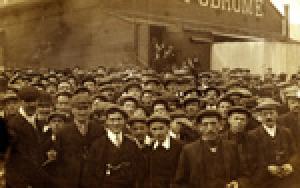One hundred years ago, a group of miners from South Wales published a radical economic and political pamphlet which ‘received a blaze of publication’ in The Times and other national newspapers. It was the topic of a special house of commons debate and ‘became a household word’ in the coalfields of Britain, according to miners’ historian R Page Arnot.
As the pre-First World War…


